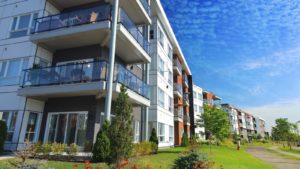Securing Multi-Dwelling Unit Internet Data Flow Through Strong Encryption Standards to Protect End-User Privacy and Information Integrity
Securing Multi-Dwelling Unit Internet Data Flow Through Strong Encryption Standards to Protect End-User Privacy and Information Integrity
Blog Article
In the current digital landscape, securing internet data is more crucial than ever before, particularly in Multi-Unit Buildings (MDUs) like flat complexes and condominiums settings. These environments often have many tenants sharing the identical web service, which can result to possible security threats. To ensure that residents' confidentiality and information integrity are protected, it is essential to adopt strong encryption standards. Data encryption is a method that scrambles information, making it inaccessible to anyone who do not have the correct credentials to decrypt it. This process helps maintain personal data safe from cybercriminals and unapproved access.
One of the widely widely used encryption protocols is SSL Sockets Layer (SSL) and its replacement, TLS Layer (TLS). These standards establish a protected connection between a user’s device and the web, guaranteeing that any data transferred remains private. When tenants in an MDU access websites that utilize SSL/TLS, their personal data, including passwords and payment card numbers, is encrypted. This implies that although when someone attempts to intercept the data, they would merely see a mess of characters and numbers, making it almost unfeasible to comprehend. By encouraging the use of such standards, MDUs can greatly enhance the safety of their tenants' online activities.
A further crucial encryption method is Virtual Secure Tunnel (VPN) solutions. A VPN creates a secure tunnel for web traffic, which safeguards users from invasive observers, especially when using public wireless networks. In an MDU, where many residents may link to the identical service, using a VPN can help guarantee that individual web activities remain confidential. This is especially crucial for tasks such as internet banking or accessing confidential data. By encouraging the adoption of VPNs among residents, MDUs can foster a safer internet environment and help protect against data leaks.
In addition to these encryption methods, it is vital for MDUs to inform their tenants about the significance of cybersecurity. Many people may not be aware of the risks associated with utilizing common internet connections. Offering resources on how to recognize phishing attempts, the importance of robust credentials, and the advantages of using secure sites can enable tenants to assume charge of their online safety. Workshops or educational meetings can be effective ways to increase awareness and encourage best practices for online safety.
Finally, MDUs should consider collaborating with web service providers (ISPs) network security frameworks for mdu that emphasize security and offer enhanced coding options. By partnering with ISPs that implement strong encryption protocols, MDUs can ensure that their tenants have availability to secure web connections. This partnership can result to improved general safety for the entire complex, as well as enhanced trust among residents. By taking these measures, MDUs can create a more secure internet environment, protecting user privacy and information security in an increasingly connected world.